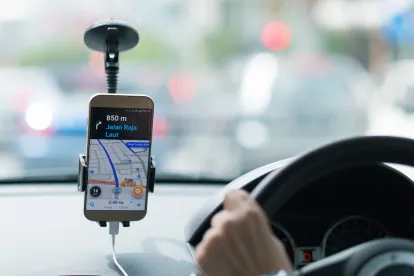Lyft and other companies have become a part of life and people look to them for a safe ride home at the end of a night out. However, ridesharing companies, like Lyft and Uber, have been under fire for passenger safety concerns, and the stories of women being sexually assaulted by their drivers are prolific, harrowing and terrifying. In response to this disturbing trend, a wave of lawsuits in California are addressing the company’s responsibility when a passenger is assaulted.
Lyft Sexual Assault Claims Consolidated in San Francisco Superior Court
Recently, California Superior Court Judge Hon. Kenneth Freeman granted a petition to consolidate multiple Lyft sexual assault cases in California recommending the Superior Court of California San Francisco County as the appropriate venue for the “complex” coordinated matters to be heard.
The Lyft passenger lawsuits claim the plaintiffs were sexually assaulted by sexual predators driving for Lyft after Lyft had been on actual notice of ongoing, sexual assaults by its drivers. According to the complaints, Lyft failed to respond to the sexual assaults by adopting and implementing adequate driver hiring or monitoring systems and procedures to protect riders. This failure to respond to an identified, systemic issue of sexual assault put more riders at risk.
The Lyft plaintiffs filed a motion to coordinate the cases, as most of the cases included in the ruling had been filed in San Francisco Superior Court. The court agreed with the Lyft plaintiffs that: Lyft's corporate headquarters are in San Francisco, as are the majority of corporate witnesses and documents. The court added, the San Francisco Superior Court uses e-filing, which could potentially save the parties significant costs. Additionally, only cases that are "complex" as defined by California’s Judicial Council standards may be coordinated.
Need for ESI (Electronically Stored Information) Orders, Are Lyft Drivers are Independent Contractors or Employees, Additional Plaintiffs Joining Requires Complex Case Management
Co-Counsel for the Lyft Sexual Assault Plaintiffs, Brooks Cutter of Cutter Law argued that there are likely to be thousands of documents, studies, e-mails, and memoranda that are relevant to the claims and defenses in this case and discovery will inevitably require a complex ESI (Electronically Stored Information) order and accordingly a court like San Francisco Superior Court is well-equipped to handle such issues, including staying discovery, staying portions of the case, obtaining stipulations that apply to the entire coordinated case, and selecting bellwether plaintiffs.
Many of the underlying cases in the consolidation action allege vicarious liability or the liability of Lyft for the torts or wrongful actions of their drivers whether or not Lyft classifies them as an employee or independent contractor. Lyft, Uber, and Doordash are actively fighting California Assembly Bill 5 Pledging over $90 Million To Fund Voter Initiative To Overturn AB-5 which went into effect January 1, 2020. AB-5 profoundly alters the legal standard applied in evaluating whether a worker is classified as an employee or an independent contractor. Furthermore, Uber and Postmates on December 31st filed a legal challenge in Federal Court alleging AB-5 violates individuals’ constitutional rights, seeking declaratory and injunctive remedies claiming the law unfairly discriminates against technology platforms and those who make a living through them.
Lyft has also been accused of stalling and slowing down discovery. Coordinated proceedings could help plaintiffs’ attorneys combat Lyft’s delays, and it could be beneficial to have one judge see how Lyft has conducted itself in discovery.
Attorney Cutter stated he is aware of five more related sexual assault cases that have been filed in the time since that petition was filed. According to attorney Cutter, “There are definitely victims who have not yet come forward.”
Lyft Fought Against Sexual Assault Lawsuit Consolidation
Lyft, represent by Williams & Connolly, argued that the consolidation of Lyft Sexual assault cases “would make in San Francisco Superior Court a national clearinghouse for claims against San Francisco-based companies.” Furthermore, Lyft contended that:
“all claims against a California based-company ---wherever the underlying incidents arise, and however much the disputed facts occurred elsewhere and other states’ laws govern the contested legal issues --- could be brought in California courts and coordinated.”
Lyft’s two main objections to consolidation are that “the allegations of misconduct are not the same and that the majority of the cases did not occur in California.”
Judge Freeman, however, disagreed with the company, focusing instead on Lyft’s actions or inactions as an organization to protect rider’s safety. "To the contrary, the predominating legal and factual issues will examine Lyft's liability for allegedly failing to institute a system to have prevented the assaults in these cases and potential future assaults." Judge Freeman said. "The court agrees with plaintiffs that this is not a case against the drivers; it is fundamentally a case against Lyft."
Significance of Lyft Consolidation Ruling
Judge Freeman also found that coordination of the suits would make the most efficient use of court resources and avoid duplicative testimony. In giving his ruling he further noted that there is a risk of duplicative and inconsistent rulings if the cases were not coordinated, which would create confusion, and it would hinder the Court of Appeal's ability to hear challenges to inconsistent rulings, orders, and judgments, which would inevitably cause significant delays.
"This is an important ruling for victims as it means the claims will be heard in a single court in California," plaintiff’s co-counsel Brooks Cutter said. "Lyft opposed our motion and wanted to force victims to undergo litigation in separate courts across the country. As a California company, it is appropriate for these Lyft claims to be heard in California."
The Lyft sexual assault and rape claims each allege that the company did not adequately address the issue of sexual misconduct committed by sexual predators who drove for the ride-sharing company. Furthermore, they allege Lyft owed that duty to its riders, who believed it offered a safe form of transportation. Attorney Cutter says, “The occurrence of sexual assault in the vast majority of these lawsuits is undisputed. The focus of these lawsuits is Lyft’s accountability for the assaults, which plaintiffs contend were enabled by Lyft’s lax background checks and failure to enact reasonable in-app monitoring to help ensure rider safety.”
Alexandra LaManna, a spokeswoman for Lyft, disclosed to the New York Times: in 2019 nearly one in five employees at the company had been dedicated to initiatives strengthening the rideshare platform’s safety, and that in recent months Lyft had introduced more than 15 new safety features. Lyft announced in September of 2019 some of these safety features: access to 911 through the app and monitoring and offers of support from Lyft personnel to the driver and passenger if a trip is experiencing an unexpected delay. These are on top of the company’s criminal background checks, steps to prevent fraudulent use of the app and identify driver identity, and harassment prevention programs.
However, despite these steps, more Lyft lawsuits are being filed, alleging the ride-sharing company has not taken adequate steps to protect riders from sexual assault.
Lyft has not Released a Safety Report – Lyft Victims Can Still File Lawsuits
In December 2019, Lyft competitor Uber released a safety report. Uber reported that in 2017 and 2018 it received reports of 5,981 incidents of sexual abuse. In 2018, this included 235 rapes and 280 reports of attempted rape, 1,560 reports of groping, 376 reports of unwanted kissing to breast, buttocks or mouth and 594 reports of unwanted kissing to another body part. Because Uber's figures are based on the information it received, the actual numbers could in fact be higher than reported.
Lyft has not released its safety report regarding sexual assaults, rapes, and accidents. Attorney Cutter finds the lack of safety report from Lyft to be problematic. He says, “It is important for Lyft to issue a safety report so the public has a better understanding of the significant risk of sexual assault in rideshare vehicles.”
Victims who suffered sexual assault committed by a Lyft driver are still eligible to file a lawsuit. Consolidation of the current lawsuits does not prevent future lawsuits from being filed, and it is likely there are many more victims who have yet to come forward about their experiences.




 />i
/>i

